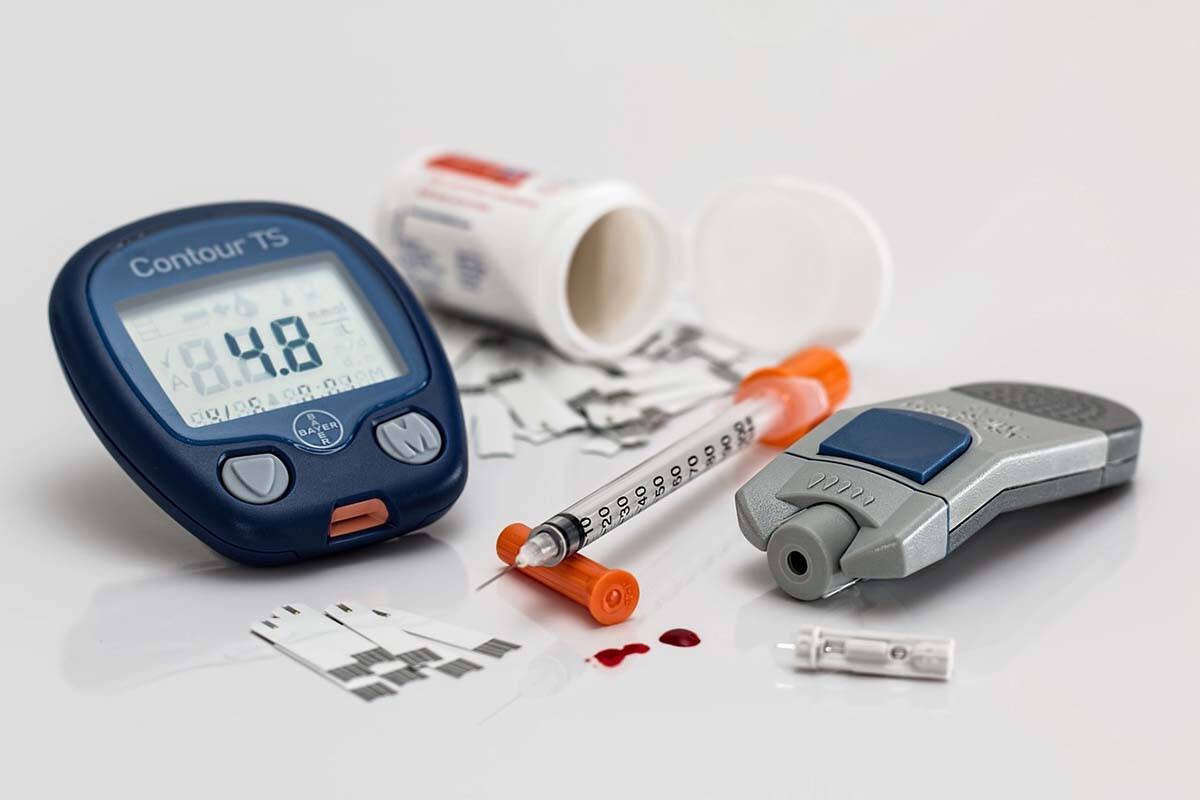Diabetes, a chronic condition affecting millions worldwide, has long been a formidable challenge in the realm of healthcare. However, recent scientific breakthroughs have kindled a renewed sense of hope as researchers are making significant strides towards finding a cure. In this article, we delve into the intricacies of diabetes, explore the latest advancements in its treatment, and discuss the promising avenues leading us closer to a cure.
Understanding Diabetes:
Diabetes, characterized by elevated blood sugar levels, occurs when the body's ability to produce or effectively use insulin is impaired. This metabolic disorder is primarily classified into two types: type 1 and type 2 diabetes. While type 1 diabetes is an autoimmune condition where the body mistakenly attacks the insulin-producing cells, type 2 diabetes is often attributed to a combination of genetic predisposition and lifestyle factors such as obesity and sedentary behavior.
Advancements in Treatment:
Over the years, diabetes management has relied on insulin injections, oral medications, and lifestyle modifications to control blood sugar levels and mitigate the associated complications. However, significant advancements have been made to enhance treatment efficacy and improve the quality of life for individuals with diabetes.
1. Artificial Pancreas:
The development of an artificial pancreas, also known as closed-loop systems, represents a remarkable milestone in diabetes care. This device integrates continuous glucose monitoring (CGM) technology with an insulin pump, enabling automated insulin delivery based on real-time blood sugar readings. By mimicking the functions of a healthy pancreas, this breakthrough technology offers better blood glucose control, reducing the burden of constant monitoring and manual insulin administration.
2. Islet Cell Transplantation:
Islet cell transplantation has emerged as a potential cure for type 1 diabetes. This procedure involves isolating insulin-producing cells, called islets, from a donor pancreas and transplanting them into the recipient's liver. Successful islet cell transplantation has allowed some individuals with type 1 diabetes to achieve insulin independence, effectively eliminating the need for exogenous insulin injections. Ongoing research aims to refine this procedure and make it more widely accessible.
3. Gene Therapy:
Gene therapy holds immense promise in revolutionizing diabetes treatment. By manipulating genes responsible for insulin production and regulation, scientists aim to restore normal pancreatic function. Several preclinical studies have shown encouraging results, with gene therapy interventions leading to improved glucose metabolism and reduced insulin resistance. While gene therapy is still in its early stages, it offers a potential avenue for long-term diabetes management and, ultimately, a cure.
4. Immunotherapy:
Researchers are investigating the use of immunotherapy to prevent and reverse type 1 diabetes. By modulating the immune response responsible for attacking insulin-producing cells, immunotherapeutic approaches aim to halt or slow down the progression of the disease. Clinical trials involving immune-modulating agents have shown promising results, raising hopes for future breakthroughs in diabetes prevention and potential reversal.
The Road to a Cure:
While significant advancements have been made, a complete cure for diabetes remains an ongoing pursuit. It is crucial to acknowledge that achieving a cure requires comprehensive research, rigorous clinical trials, and meticulous regulatory approvals to ensure safety and effectiveness. However, with the collective efforts of scientists, healthcare professionals, and individuals affected by diabetes, the prospect of a cure is within reach.
Conclusion:
The landscape of diabetes care is evolving rapidly, fueled by groundbreaking discoveries and innovative technologies. From artificial pancreas systems to islet cell transplantation, gene therapy, and immunotherapy, these advancements are providing hope to individuals living with diabetes. Although the journey to a definitive cure continues, the progress made thus far serves as a testament to the resilience of the scientific community. With continued support, research, and awareness, the day when diabetes is conquered may not be far off, ushering in a brighter future
for millions affected by this chronic condition.
Harnessing the Power of Nature: Herbal Remedies in the Fight Against Diabetes
In the pursuit of optimal health, humanity has long looked to nature for solutions. In recent years, the potential of herbal remedies in combating diabetes has emerged as a captivating topic of interest. These natural wonders, steeped in centuries of traditional wisdom, hold promise as complementary approaches to conventional treatments. Let us embark on a fascinating journey into the realm of herbal medicine and explore how these botanical allies can contribute to the battle against diabetes.
1. Bitter Melon:
With its distinctive appearance and potent medicinal properties, bitter melon has earned its rightful place in the fight against diabetes. This tropical fruit, renowned for its bitter taste, contains compounds that have demonstrated remarkable anti-diabetic effects. Studies have revealed that bitter melon can help regulate blood sugar levels by increasing insulin secretion, improving glucose uptake, and reducing insulin resistance. Incorporating bitter melon into one's diet or consuming it as a supplement can be a valuable addition to diabetes management.
2. Cinnamon:
For centuries, cinnamon has delighted palates with its warm and aromatic allure. Beyond its culinary appeal, this spice harbors a secret: its potential to assist in controlling blood sugar levels. Active compounds found in cinnamon enhance insulin sensitivity and improve glucose metabolism. Furthermore, cinnamon exhibits antioxidant properties, offering protection against complications associated with diabetes. Adding a sprinkle of cinnamon to meals or sipping on a soothing cup of cinnamon-infused tea may lend a helping hand in the battle against diabetes.
3. Fenugreek:
In the world of herbal remedies, fenugreek shines as a star. This herb, rich in fiber and essential nutrients, has shown remarkable potential in managing diabetes. Fenugreek seeds contain soluble fiber that slows down carbohydrate digestion and absorption, consequently preventing spikes in blood sugar levels. Additionally, fenugreek may stimulate insulin secretion and enhance insulin sensitivity. Incorporating fenugreek seeds into cooking, steeping them in tea, or taking them as a supplement can be beneficial for individuals grappling with diabetes.
4. Gymnema Sylvestre:
Among nature's gifts, Gymnema sylvestre, a woody climbing shrub native to India, stands out as a remarkable herbal ally in the fight against diabetes. Gymnema, meaning "sugar destroyer" in Hindi, lives up to its name by suppressing the sweet taste sensation and reducing sugar cravings. Furthermore, this herb exhibits anti-diabetic properties by promoting insulin production, improving glucose utilization, and protecting pancreatic cells. Gymnema sylvestre extracts, available in supplement form, can be a valuable addition to a holistic diabetes management plan.
5. Aloe Vera:
Renowned for its soothing properties, aloe vera holds promise as a natural remedy for diabetes. This succulent plant, revered for its therapeutic qualities, contains compounds that exhibit anti-diabetic effects. Aloe vera gel has been shown to lower blood sugar levels and improve insulin sensitivity. Additionally, aloe vera's antioxidant and anti-inflammatory properties may help reduce the risk of diabetes-related complications. Incorporating aloe vera gel into smoothies or consuming it as a dietary supplement may provide an added boost in diabetes management.
It is important to note that while herbal remedies offer potential benefits, they should not replace conventional medical treatments or prescribed medications. It is advisable to consult with a healthcare professional before incorporating herbal remedies into a diabetes management plan, especially for individuals taking medications or with pre-existing medical conditions.
In the quest for optimal health and well-being, herbal remedies can complement conventional diabetes treatments. The bountiful offerings of nature, represented by bitter melon, cinnamon, fenugreek, Gymnema sylvestre, aloe vera, and many others, hold immense potential in the fight against diabetes. Embracing the wisdom of ancient traditions and
embracing the wisdom of ancient traditions, we can harness the power of nature to support our journey towards a healthier life. By incorporating these herbal allies into our daily routines, we take a step closer to achieving balanced blood sugar levels, enhanced insulin sensitivity, and reduced risk of diabetes-related complications. Let us embrace the healing potential of herbal remedies, allowing nature's bounty to guide us on a path towards wellness and vitality.







0 Comments